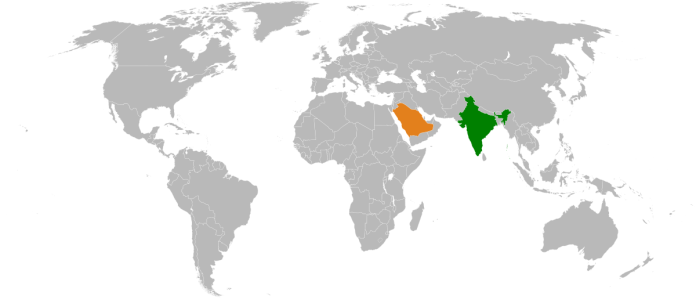Saudi Arabia’s joint statement with Pakistan, echoing India’s long-standing stance on the Kashmir issue, marks a significant diplomatic development with far-reaching implications. During Pakistan Prime Minister’s visit, Prince Mohammed bin Salman, representing Saudi Arabia, issued a statement urging India and Pakistan to resolve their “outstanding issues” bilaterally. This stance, aligning with India’s position on Kashmir, deals a blow to Pakistan’s agenda of internationalising the Kashmir issue. The joint statement reflects a mature diplomatic approach, emphasising bilateral dialogue as the preferred mechanism for resolving contentious issues between India and Pakistan. This departure from rigid postures towards a more conciliatory approach reflects a maturation in diplomatic strategies, acknowledging the complexity and interconnectedness of regional dynamics. Geopolitical experts view this move positively, noting its potential to enhance relations between India and Saudi Arabia. The cordial and friendly ties between the two countries, dating back to 1947, have been further bolstered by recent diplomatic engagements, including Saudi Arabia’s participation in the G20 Summit and high-level visits between the two nations.
India’s emphasis on strengthening diplomatic ties with Gulf countries, particularly Saudi Arabia, the UAE, and Qatar, underscores the strategic importance of the region in India’s foreign policy calculus. Prime Minister Narendra Modi’s efforts to foster personal rapport with state heads have yielded dividends in advancing mutual interests, including economic cooperation. The signing of agreements such as the India-Middle East-Europe Economic Corridor (IMEC) further underscores the commitment to deepening economic ties between India and Saudi Arabia. In the current geopolitical landscape, economic considerations loom large, driving nations to prioritise economic stability and progress for their citizens. Gulf countries, including Saudi Arabia, have increasingly sought economic partnerships with India, recognising its status as a preferred investment destination. India’s robust economic standing and future projections position it favourably for attracting foreign investments, including those from Gulf nations.
Conversely, Pakistan’s economic challenges are well documented, with its leadership facing criticism for diverting attention from pressing economic woes by perpetuating the Kashmir issue. Despite historical claims, Pakistan’s occupation of Indian territory Pakistan-occupied Jammu and Kashmir (POJK) remains a contentious issue. India’s firm stance on reclaiming POJK is clearly emphasised now by the present regime. Saudi Arabia’s alignment with India’s position on bilateral talks over Kashmir underscores the shifting dynamics in the region. It represents a diplomatic victory for India, highlighting international acknowledgement of its stance on the Kashmir issue. Pakistan’s repeated attempts to garner support for its Kashmir agenda have faced resistance on the global stage, reflecting the dwindling international sympathy for its position. The joint statement serves as a stark reminder for Pakistan to acknowledge ground realities and prioritise domestic concerns over futile diplomatic manoeuvres. Instead of persistently raking up the Kashmir issue, Pakistan must focus on addressing its economic challenges and improving the welfare of its citizens.
Once again, Pakistan finds itself in a familiar position of isolation. Despite its persistent efforts, no influential nation worldwide is inclined to back Pakistan’s stance on the Kashmir issue. History unequivocally demonstrates India’s commitment to a policy of non-aggression, while Pakistan’s track record portrays it as a perennial troublemaker in the region. Saudi Arabia’s endorsement of bilateral talks between India and Pakistan on the Kashmir issue signifies a significant diplomatic shift with implications for regional dynamics. It underscores the importance of pragmatic diplomacy and bilateral dialogue in resolving longstanding conflicts. For Pakistan, it serves as a sobering reminder to reassess its priorities and pursue constructive engagement with India for the betterment of the region. The onus is on Pakistan to uphold the principles of dialogue, mutual respect, and inclusivity. Ultimately, sustainable peace and prosperity in South Asia hinge on mutual respect, dialogue, and a commitment to addressing shared challenges.


